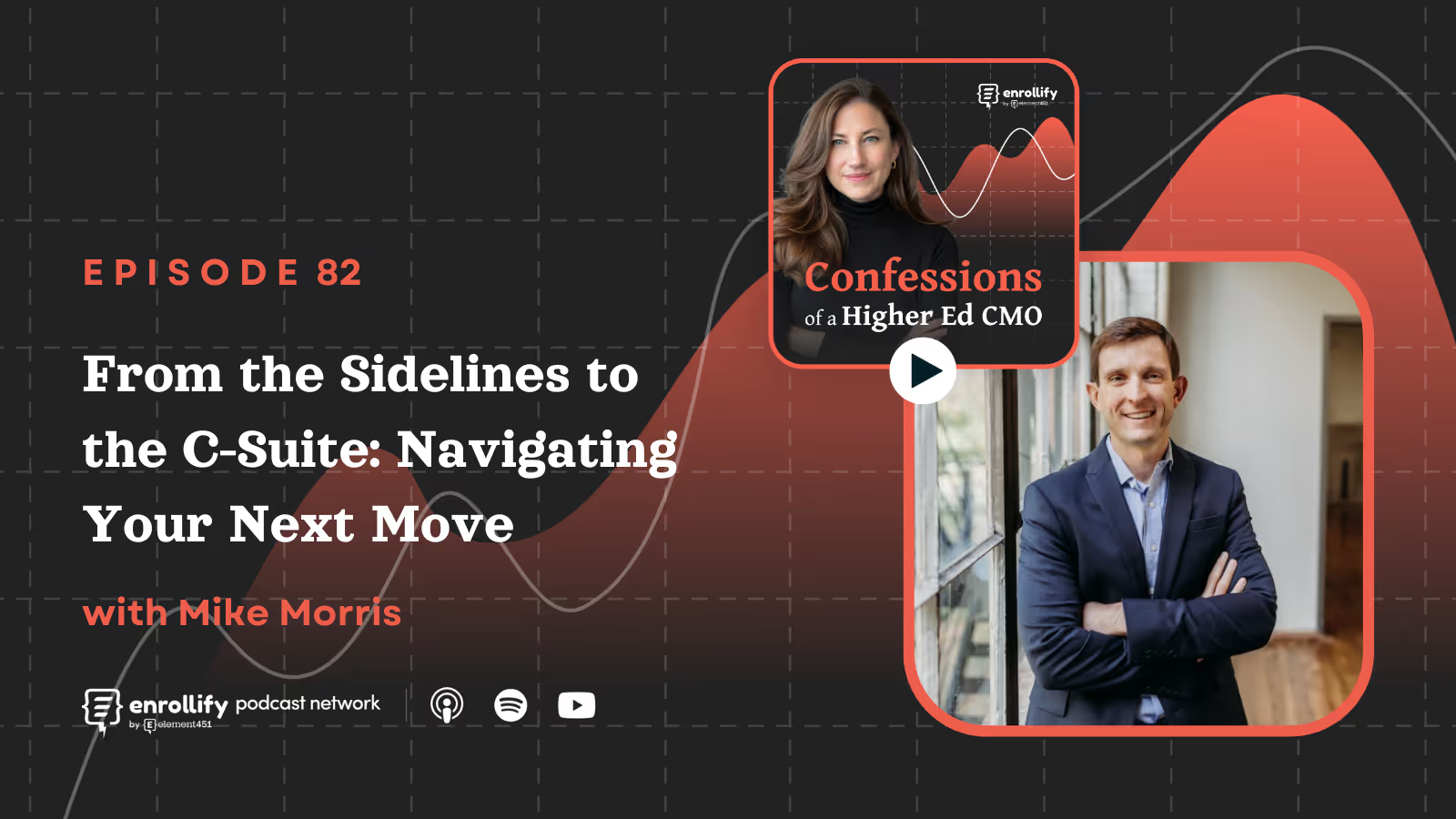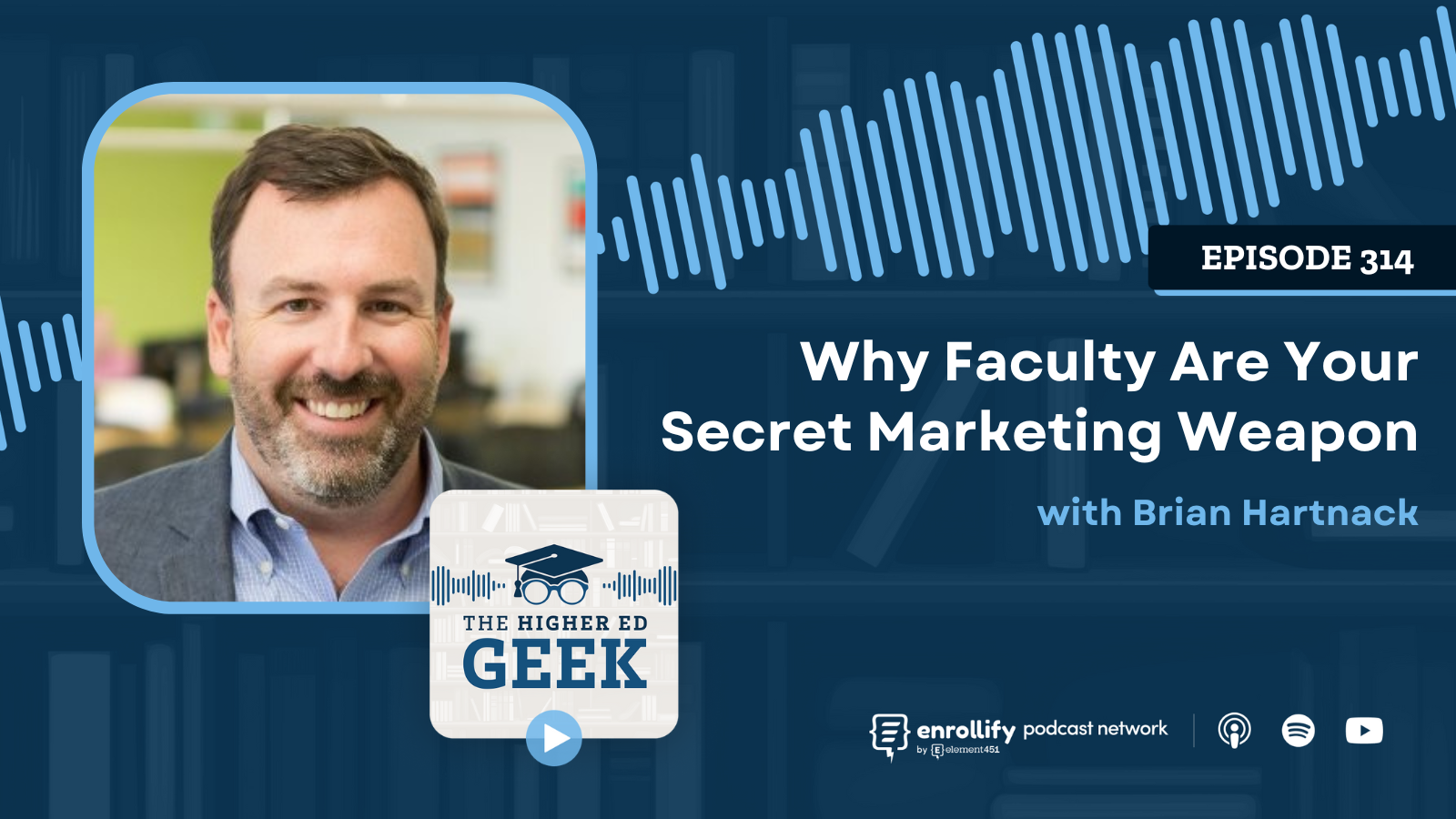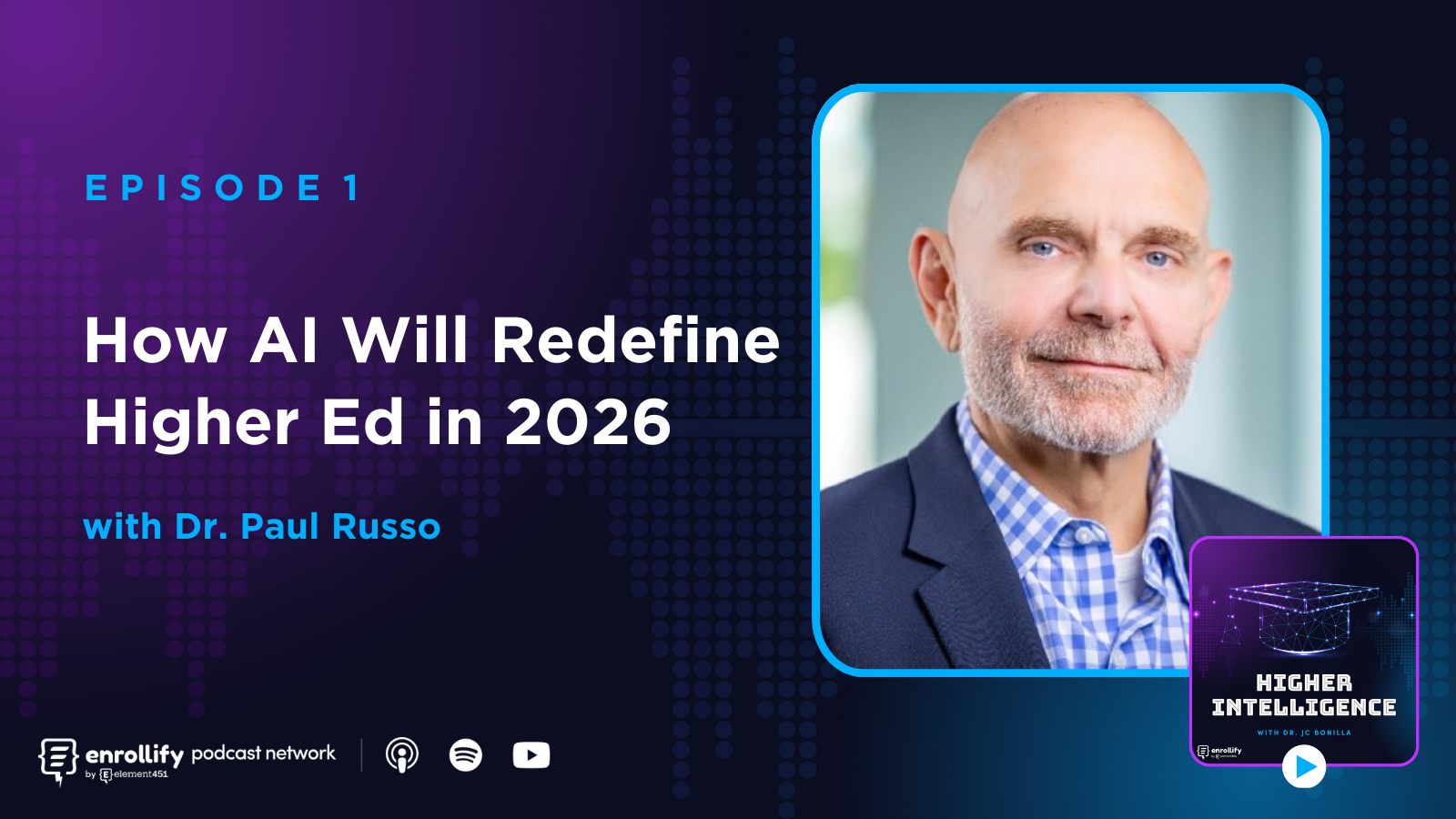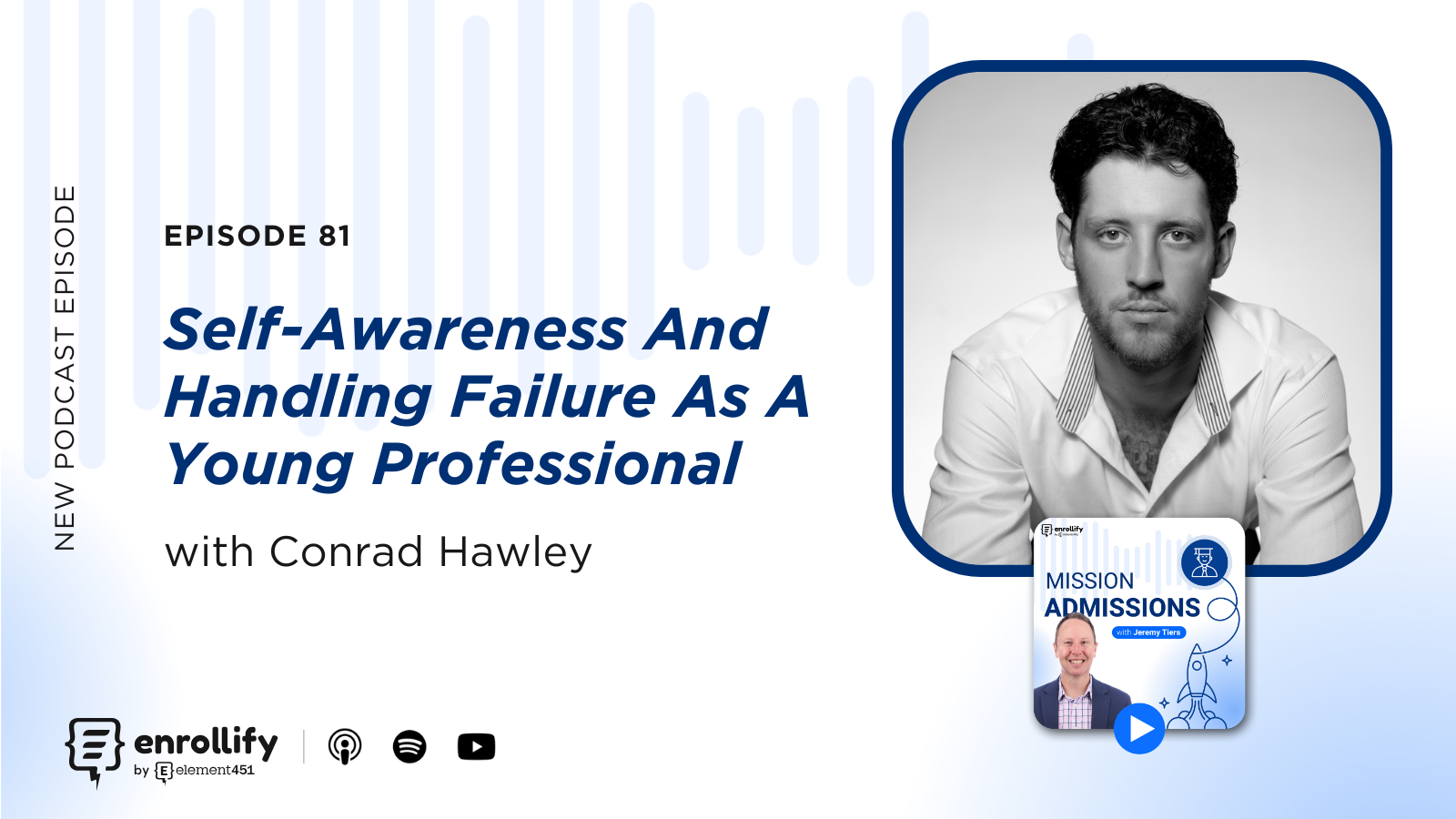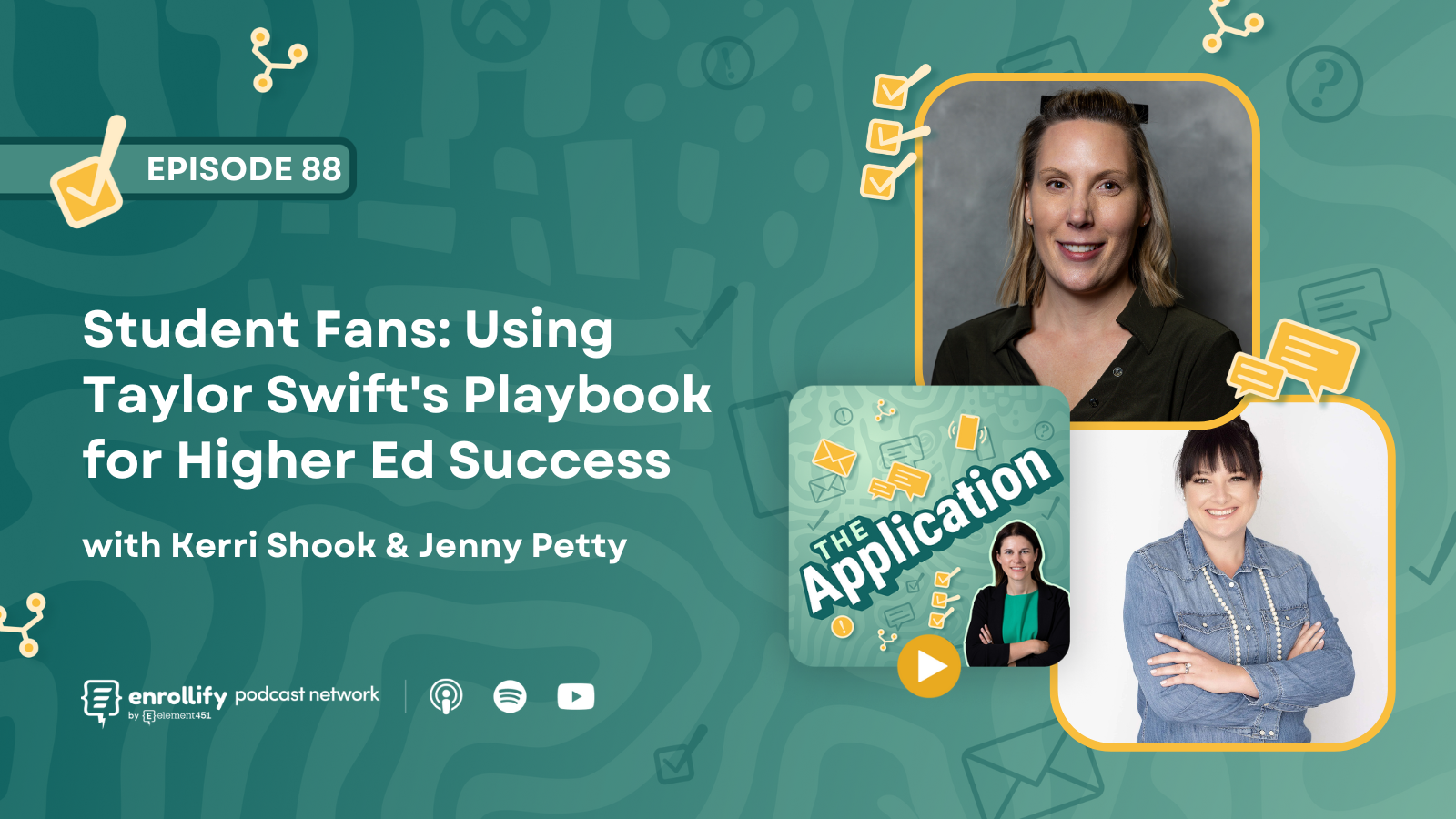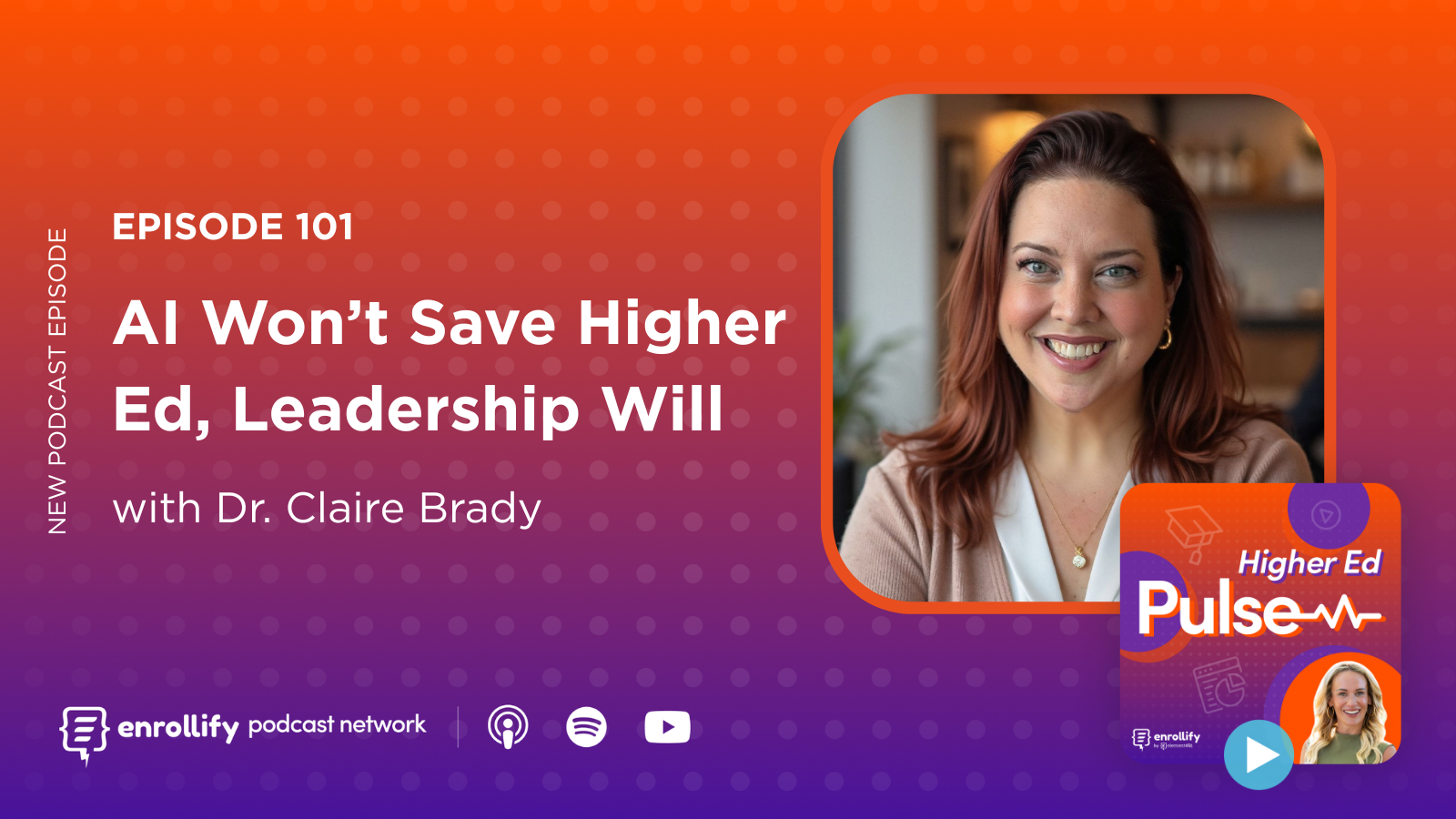About the Episode
Got a story to tell? An innovative idea to share? Fill out our guest nomination form and let's chat!
About the Episode:
In this episode of Confessions of a Higher Ed CMO, host Jaime Hunt sits down with Mike Morris, Partner at the Ward Group, a leading executive search firm specializing in marketing and communications leadership roles. Together, they unpack how higher education marketers can position themselves for VP- and CMO-level roles—and how to build relationships with search firms that actually lead to job offers. This insightful conversation covers what presidents often misunderstand about the CMO role, how to craft a compelling resume, and why emotional intelligence may matter more than your title.
Key Takeaways
- Build relationships before you need them. Recruiters remember candidates who connect early and show genuine interest—not just those who apply when roles open.
- Your resume should market you. Avoid basic errors and clearly explain the scope and impact of your work, especially in a university or college setting.
- Understand the marketing–communications spectrum. Senior leadership roles vary dramatically—clarify whether a role is more enrollment-focused or comms-driven.
- VP potential isn’t just about titles. Exposure to executive decision-making and leadership EQ are key indicators of readiness for the next level.
- AI in higher education is becoming a differentiator. While not yet required, AI literacy will soon be expected—and showing strategic thinking around AI can set you apart.
- Internal comms and enrollment marketing are trending. Post-COVID, schools are increasingly looking for leaders who can navigate both strategic communications and enrollment challenges.
What do executive recruiters wish higher ed marketers knew?
Mike Morris emphasizes the value of personal, ongoing relationships with recruiters. At the Ward Group, they invest time in understanding a candidate’s journey, not just their resume. For marketers, that means being proactive—introduce yourself before you’re ready to move, and don’t hesitate to keep in touch.
What makes a marketing candidate memorable to a recruiter?
An effective “career elevator pitch” goes a long way. Recruiters look for candidates who clearly articulate their journey, impact, and contemporary marketing skills. Even if someone isn’t yet a VP, their presence, exposure to leadership, and management portfolio can make them a strong contender.
How should marketers frame their resumes for senior leadership roles?
Details matter. Inconsistent formatting, vague bullet points, and missing context can hurt your chances. Mike suggests including key info like reporting lines, team size, budget responsibility, and institutional context (e.g., size, structure, type). And yes—spell check still matters.
What common mistakes do marketers make when applying for executive roles?
Mike sees too many resumes that don’t “sell” the marketer—an ironic misstep. Beyond formatting flaws, marketers often miss the chance to showcase measurable outcomes and strategic impact. Using jargon can also alienate non-marketing members of a search committee.
How can candidates better resonate with search committees?
Specificity is key. Whether in your resume, cover letter, or interviews, avoid buzzwords and get real about your impact. Show how you’ve driven results. And if you’re using AI to assist with your application materials, make sure you’re not handing in something generic and impersonal.
Is AI literacy an emerging requirement in higher ed marketing leadership?
Not quite—yet. While few job descriptions explicitly ask for AI skills, institutions are increasingly making AI strategy a top-level priority. Candidates who bring AI fluency—or at least ask smart questions about it—can stand out in the hiring process.
What trends are shaping VP- and CMO-level searches right now?
Institutions are still prioritizing strategic communications, especially around issues management and executive visibility. But there’s a growing demand for enrollment marketing chops as the enrollment cliff looms. Internal communications is also getting more attention, even if it's not in the job title.
Should resumes still be one page long?
Not necessarily. While a two-page resume is often ideal, Mike says hiring committees will review longer resumes—especially in higher ed. Just ensure the content is relevant, well-organized, and easy to digest. Bonus points for adding a concise contextual “summary line” under each role.
How can up-and-comers position themselves for VP or CMO roles?
Exposure to executive leadership is essential. Mike recommends seeking opportunities to support or collaborate with presidents, deans, and CFOs—even informally. Developing enterprise-level knowledge and building cross-campus relationships can fast-track your readiness.
How do search firms view AI-generated cover letters?
They can usually tell. AI tools can help with structure or polish, but your letter needs to show your unique voice and explain why you’re a great fit for that specific institution. Generic or robotic applications won’t cut it—especially not for communications leadership roles.
Connect With Our Host:
Jaime Hunt
https://twitter.com/JaimeHuntIMC
About The Enrollify Podcast Network:
Confessions of a Higher Ed CMO is a part of the Enrollify Podcast Network. If you like this podcast, chances are you’ll like other Enrollify shows too!
Some of our favorites include Talking Tactics and Higher Ed Pulse.
Enrollify is produced by Element451 — the next-generation AI student engagement platform helping institutions create meaningful and personalized interactions with students. Learn more at element451.com.







